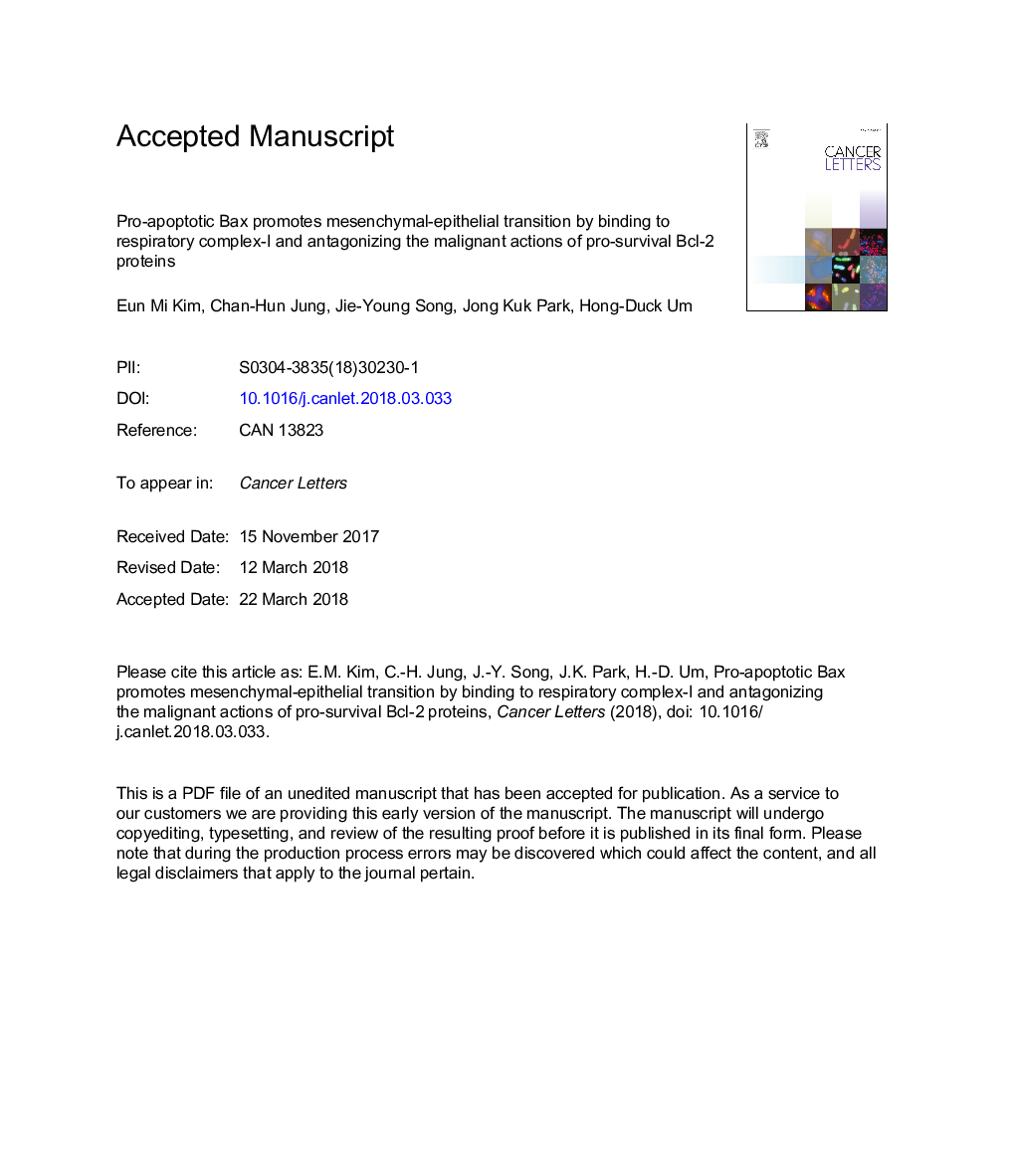| Article ID | Journal | Published Year | Pages | File Type |
|---|---|---|---|---|
| 8434506 | Cancer Letters | 2018 | 43 Pages |
Abstract
The plasticity of solid tumors between the epithelial and mesenchymal states critically influences their malignant progression and metastasis. The epithelial-mesenchymal transition (EMT), which supports cancer cell invasion and metastasis, is promoted by pro-survival members (e.g., Bcl-2 and Bcl-XL) of the Bcl-2 protein family, which are well-known key apoptosis regulators. We found that Bcl-w, another pro-survival member, promotes EMT by increasing respiratory complex-I activity and reactive oxygen species (ROS) levels. In contrast, pro-apoptotic Bax facilitates mesenchymal-epithelial transition by binding to complex-I, which inhibits complex-I-induced ROS production. Functional antagonism between pro-survival and pro-apoptotic proteins in regulating tumor plasticity was directly confirmed by co-expressing Bax with Bcl-w or Bcl-XL. Therefore, the balance between the functionally opposing Bcl-2 proteins appears to be a critical determinant of cancer cell phenotypes. We further showed that sub-lethal doses of γ-radiation induced EMT by increasing Bcl-XL and Bcl-w levels and complex-I activity. We propose that Bcl-2 proteins and complex-I are potential targets for preventing tumor progression and the malignant actions of radiotherapy.
Keywords
Related Topics
Life Sciences
Biochemistry, Genetics and Molecular Biology
Cancer Research
Authors
Eun Mi Kim, Chan-Hun Jung, Jie-Young Song, Jong Kuk Park, Hong-Duck Um,
